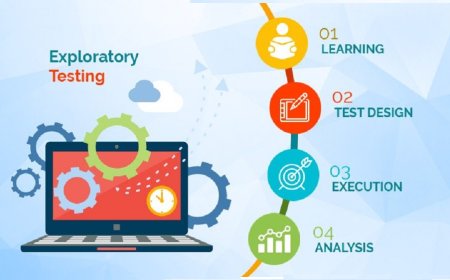Growth of the Cancer Screening Test Industry in India

The healthcare landscape in India has undergone significant transformation over the last two decades. One of the most remarkable advancements has been the rise of thecancer screening test industry. Once limited in accessibility and awareness, this sector is now experiencing robust growth, driven by a combination of rising cancer prevalence, better healthcare infrastructure, increasing awareness, and government initiatives.
Rising Cancer Incidence in India
Cancer remains a major public health challenge in India. According to data from various national health surveys, the country witnesses over a million new cancer cases each year. Among the most commonly diagnosed are breast cancer, cervical cancer, oral cancer, lung cancer, and colorectal cancer. The rise in incidence has heightened the importance of early detection, making cancer screening test services a vital component of healthcare delivery.
Early diagnosis not only improves survival rates but also reduces treatment costs and complications. This crucial role in preventive healthcare has made cancer screening test solutions more sought-after than ever.
Increasing Awareness and Preventive Healthcare Trends
With increased health literacy and access to digital media, the general public is becoming more informed about lifestyle-related diseases. Campaigns focused on womens health, tobacco-related illnesses, and lifestyle-related risks are helping shift focus from treatment to prevention.
Urban populations, in particular, are turning toward regular health check-ups that include a cancer screening test as part of routine diagnostics. The younger generation is also more health-conscious and likely to opt for preventive screenings, which is further fueling the industrys growth.
Government and Institutional Support
The Indian government has launched several programs to boost cancer screening and early detection. Under the National Programme for Prevention and Control of Cancer, Diabetes, Cardiovascular Diseases and Stroke (NPCDCS), there is a concerted effort to promote early diagnosis, especially in rural and semi-urban areas.
Public-private partnerships are becoming increasingly common in delivering affordable cancer screening test services. Collaborations between hospitals, diagnostic centers, and outreach programs have created better access to screenings, particularly for breast, cervical, and oral cancers.
Technological Advancements and Innovation
India has witnessed rapid adoption of medical technologies that enhance the efficiency and accuracy of diagnostic tests. The emergence of AI-powered imaging, liquid biopsies, and at-home testing kits has made the cancer screening test more accurate, less invasive, and widely available.
Molecular diagnostics, for example, now allow for highly sensitive detection of cancer markers from a simple blood or saliva sample. This has helped in scaling up early detection efforts without requiring complex hospital infrastructure.
Growth of the Diagnostic Industry
The diagnostic market in India is expanding at a compound annual growth rate (CAGR) of over 15%. Within this, the cancer screening test segment is one of the fastest-growing verticals. Diagnostic labs are expanding their reach into Tier 2 and Tier 3 cities, while also offering home collection services and telemedicine consultations. This expansion is helping close the urban-rural divide in healthcare access.
With the rise of health-tech platforms, people can now book a cancer screening test online, have samples collected at home, and receive digital reportsmaking the process convenient and accessible for all age groups.
Cost and Affordability
One of the key barriers to widespread adoption of cancer screening test services in the past was the cost factor. However, increased competition among diagnostic labs and the entry of startups into the healthcare space have led to more affordable screening packages.
In addition, various insurance companies have started offering preventive care packages that include a cancer screening test as part of their wellness benefits. This has led to a rise in regular health check-ups across income groups.
Challenges That Remain
Despite this positive growth, several challenges still hinder the full potential of the cancer screening test industry in India. These include:
-
Low awareness in rural areas
-
Lack of trained personnel and infrastructure
-
Cultural stigma around cancer
-
Limited follow-up care after screening
To overcome these, there needs to be a coordinated effort between the public health system, private healthcare providers, and community organizations. Education, outreach, and capacity-building must go hand in hand with the expansion of screening services.
The Road Ahead
The future of the cancer screening test industry in India looks promising. With a growing focus on preventive healthcare, increased investment in medical diagnostics, and rising consumer awareness, the sector is poised for rapid expansion.
Technological innovation will continue to play a central role, making screenings more accessible, less invasive, and more accurate. As the healthcare ecosystem evolves, the importance of a timely cancer screening test will only become more integral to the Indian populations health and well-being.
In conclusion, the cancer screening test industry in India is not only growingit is transforming the way the country approaches cancer care. With continued awareness and support, it has the potential to drastically reduce cancer mortality through early detection and intervention.






























